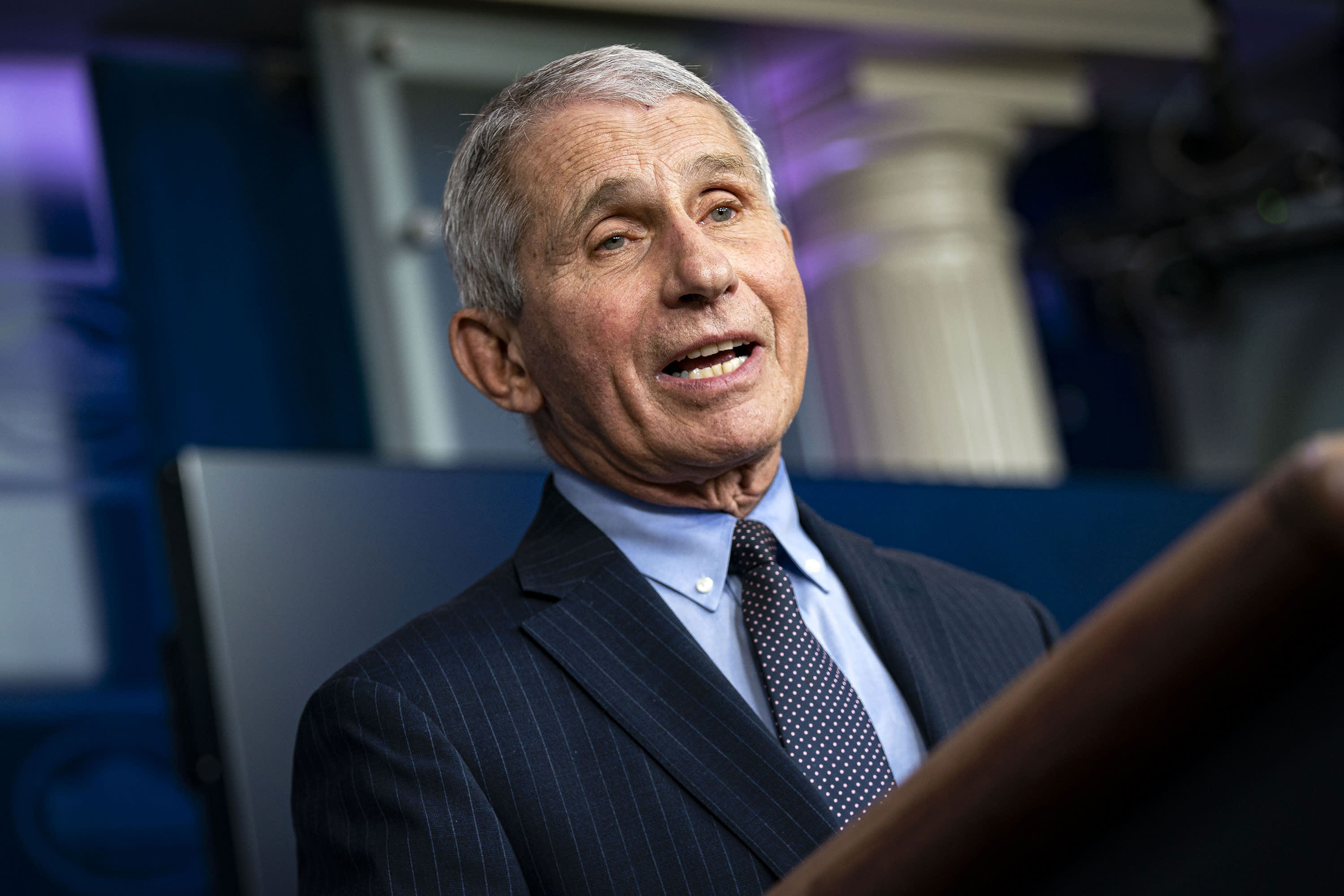
Anthony Fauci, director of the National Institute of Allergy and Infectious Diseases, speaks during a news conference in the James S. Brady Press Briefing Room at the White House in Washington, on Thursday, Jan. 21, 2021.
Al Drago | Bloomberg | Getty Images
Top U.S. health agencies will collaborate to study how effective Covid-19 vaccines are against mutated strains of the virus that have been discovered in various parts of the world, White House health advisor Dr. Anthony Fauci said Wednesday.
The Centers for Disease Control and Prevention is working to ramp up the country’s capacity to conduct genomic sequencing and monitor for mutations of the virus, CDC Director Dr. Rochelle Walensky said Wednesday at a White House Covid-19 briefing. Fauci added that the National Institutes of Health will work with the CDC to study the vaccines’ effectiveness against new variants.
“We will be monitoring in real time the effect of antibodies that we induce with current vaccines and future vaccines as to what impact they have on the ability to neutralize these mutants,” Fauci said Wednesday. He added that if new variants begin to cause concern that the vaccines will be substantially less effective, scientists have options such as “making a version of the same vaccine that in fact would be directed specifically against the relevant mutant.”
Fauci and other officials at the briefing spoke specifically about three variants of concern: the B.1.1.7 strain, which was discovered in the United Kingdom, B.1.351, which was found in South Africa, and P.1, which has become dominant in Brazil. Scientists are studying whether the strains spread more easily or cause people to become more severely sick. The B.1.1.7 strain, for example, appears to spread more easily and officials in the U.K. have said it could cause people to become more sick.
Fauci, director of the National Institute of Allergy and Infectious Diseases said the currently authorized vaccines from Pfizer–BioNTech and Moderna remain highly effective against the B.1.1.7 strain, but “things get a bit more problematic” with the B.1.351 strain that’s dominant in South Africa. He said vaccine-induced antibodies might be less effective in combatting that strain, but “it still is well within the cushion of protection.”
“You could diminish the vaccine-induced antibody efficacy by a few fold and still be well within the protective range of the vaccine,” he said.
Moderna announced Monday that its Covid-19 vaccine might be less effective against the B.1.351 strain in South Africa, and that the company is accelerating work on a booster shot to guard against that variant just in case.
Fauci said Wednesday that the federal government will collaborate with the vaccine manufacturers to help develop these so-called booster shots to ensure the U.S. is “a step or two ahead.” He added that “we have to be concerned looking forward at what the further evolution of this might be.”
Fauci also noted that the monoclonal antibody treatments, which have shown promising signs as an outpatient therapy for Covid-19, “are more seriously inhibited” by the new strain that’s become dominant in South Africa.
Walensky, President Joe Biden‘s CDC director, noted that 293 cases associated with B.1.1.7 strain dominant in the U.K. have been confirmed in the U.S. Earlier this week, the Minnesota Department of Health said it confirmed the first known U.S. case of the P.1 strain that was discovered in Brazil.




